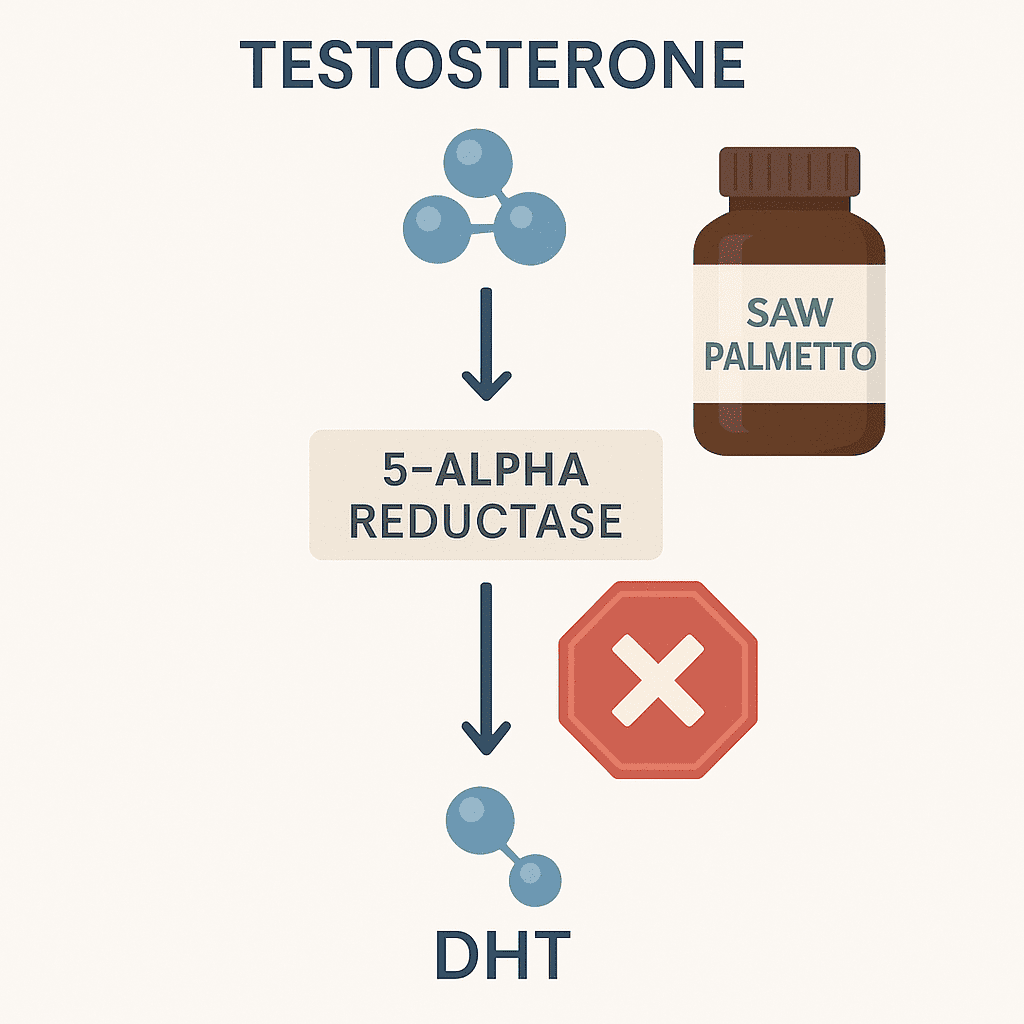
Can Prostate Supplements Worsen ED on Blood Pressure Meds?
If you’re taking a prostate supplement like saw palmetto and also managing high blood pressure, you might wonder: Is there a connection between these supplements and worsening erectile dysfunction (ED)? This article breaks down what the science says about saw palmetto ED risk, prostate supplement erectile dysfunction, and how blood pressure medications could play a role.
We’ll explore mixed research findings, the mechanisms at play, expert medical guidance, and safer options for men managing both prostate and blood pressure concerns.
Quick Summary: Does Saw Palmetto Increase ED Risk in Men on BP Meds?
| Concern | Current Evidence |
|---|---|
| Saw palmetto ED risk | Mixed: Some studies suggest benefit, others report worsened erectile function |
| Prostate supplement erectile dysfunction link | Possible in men sensitive to hormone modulation |
| BP medication sexual side effects | Prioritize evidence-based treatments; consult a doctor before combining therapies |
| Saw palmetto + BP meds = increased ED risk? | No strong data, but overlapping side effects are possible |
| Expert recommendations | Prioritize evidence-based treatments; consult doctor before combining therapies |
There’s no direct proof that saw palmetto worsens ED specifically when taken with blood pressure medications, but given how both can influence sexual function, caution is warranted.
How Saw Palmetto Might Affect Erectile Function
Saw palmetto (Serenoa repens) is often used as a natural remedy for benign prostatic hyperplasia (BPH), but its hormonal activity may also influence erectile performance, for better or worse.
The Case for Possible Benefit
Some evidence hints at positive effects. A 2013 study on PubMed found that saw palmetto may enhance erectile responses by inhibiting PDE5, the same enzyme targeted by ED drugs like Viagra. Another trial reported that libido improved and ED scores trended better (though not significantly) in men with urinary symptoms who took the supplement.
Think of it like nudging the same biological buttons as prescription ED medications, but with milder results.
The Case for Harm
The more concerning mechanism? Saw palmetto is a natural 5-alpha reductase inhibitor, meaning it blocks the conversion of testosterone to DHT. This is the same pathway targeted by drugs like finasteride, which are known to sometimes cause ED or reduced libido.
A case report documented a man developing erectile dysfunction after using a saw palmetto product. Online forums also feature similar user experiences: noticeable erectile changes even after short-term use.
In men sensitive to hormonal shifts, this could tip the balance the wrong way.
How BP Medications Influence Sexual Function
Blood pressure medications themselves are one of the most common culprits behind sexual dysfunction in men.
- Beta-blockers (like metoprolol) and thiazide diuretics are especially known to reduce libido and interfere with erectile function.
- ACE inhibitors and ARBs tend to have fewer sexual side effects, but aren’t completely free of risk.
This adds another layer to the picture: a man taking a prostate supplement and a BP med could face compounding effects, even if no formal interaction exists.
If you’re curious about related overlaps, check our article on CoQ10 and blood pressure medication overdose risk, where supplement and prescription effects intertwine in unexpected ways.
Are There Known Interactions Between Saw Palmetto and BP Medications?

Limited Evidence, But Overlaps Matter
To date, no direct clinical evidence links saw palmetto with worsened ED in men taking antihypertensives. However, the overlapping mechanisms mean the risk can’t be dismissed.
Saw palmetto interacts more strongly with:
- Blood thinners like warfarin
- Hormonal medications
- Iron supplements – which can also pose issues if taken with thyroid meds (see iron supplements and thyroid medication timing)
There’s also no evidence that saw palmetto meaningfully lowers or raises blood pressure, although some theoretical anti-inflammatory mechanisms have been proposed.
In short: your BP meds and saw palmetto may not directly clash, but the additive effect on sexual health could matter.
What Do Urologists Recommend Instead?

Why Many Urologists Avoid Saw Palmetto
Despite its popularity, saw the American Urological Association does not recommend palmetto for BPH. A major 72-week clinical trial found no significant improvement in urinary symptoms, even at triple doses.
Instead, they recommend:
- Alpha-blockers for fast symptom relief
- 5-alpha reductase inhibitors for long-term prostate shrinkage (though these, too, can also affect sexual function)
If a patient is already experiencing ED from antihypertensives, adding a prostate supplement with hormonal impact may not be wise.
In these situations, doctors often turn to tailored strategies like switching to more libido-friendly BP medications or introducing PDE5 inhibitors under supervision.
Side Effects and Safety Considerations
Common Adverse Effects of Saw Palmetto
- Mild: Headache, nausea, constipation
- Rare but serious: Increased bleeding risk during surgery
- Sexual: Lowered libido, ejaculation changes, potential ED in sensitive users
If you’re already managing multiple medications, it’s vital to talk to your provider. While there’s no red flag combining saw palmetto with blood pressure meds, it’s also not a green light – especially if sexual side effects are already present.
Who Should Be Most Cautious?
Men who:
- Are already experiencing ED from BP meds
- Have a history of low libido or sexual side effects
- Take blood thinners or hormone-affecting prescriptions
- Are you considering saw palmetto as a first step for BPH relief
These individuals should consult a provider before adding the supplement, and consider evidence-based options first.
Final Takeaway: Proceed with Caution and Clarity
The relationship between saw palmetto, ED risk, and blood pressure medications is complex and not fully understood. While some men may notice improvements, others experience setbacks, especially when two risk factors for sexual dysfunction collide.
If you’re managing prostate symptoms and blood pressure, and struggling with sexual side effects, the best path forward is:
- A medication review with your doctor
- Considering alternatives with clearer benefit-risk profiles
- Watching for symptoms if starting a new supplement
For more guidance, explore:
When in doubt, personalization beats guesswork. Everybody reacts differently.

